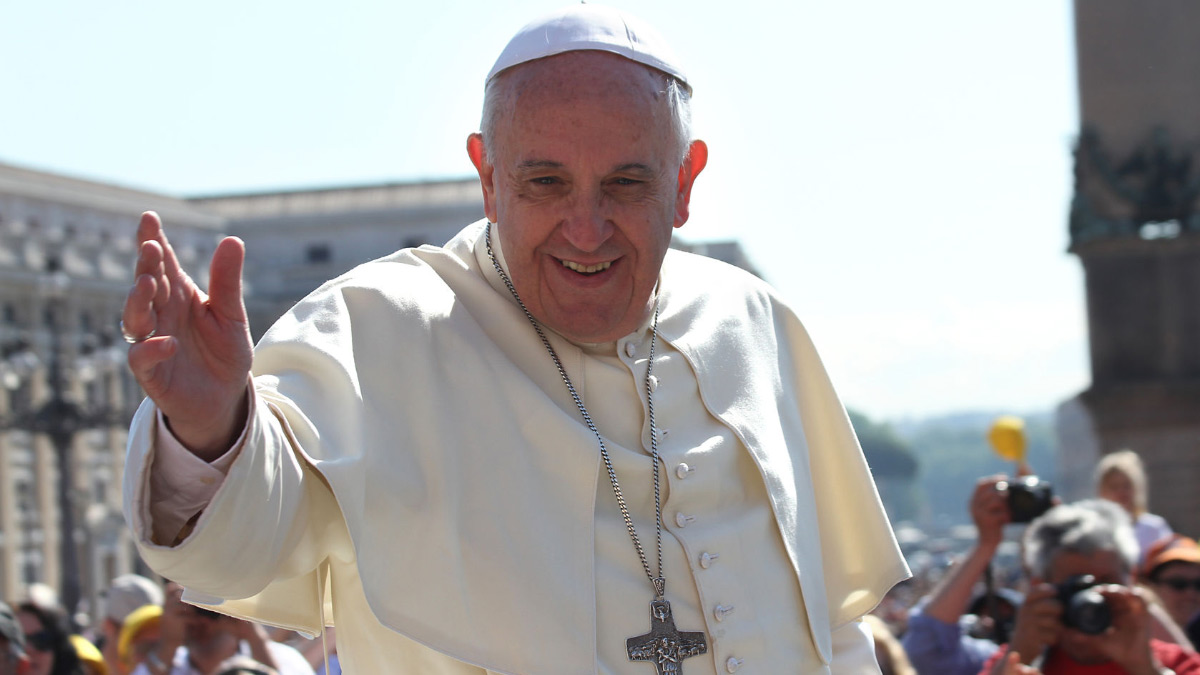As the Catholic Church marks five years into Pope Francis’ papacy, we should be grateful he has made environmental protection and helping the poor central themes of his work. Unfortunately, these noble aims are often undermined by the pontiff’s fondness for central planning by government and his antipathy for free-market capitalism.
In his 2015 encyclical, Laudato si’, his leading statement about “care for our common home,”Francis decries the excessive and wasteful consumption enabled by capitalism, and paints capitalists with an extremely broad brush, depicting them as exploitative, short-sighted, and selfishly unconcerned about the environment.
This misunderstanding of free-market capitalism is a regrettable distortion. Such criticisms disregard the market incentives and mechanisms (not to mention individual liberties) that best alleviate the environmental degradation and extreme poverty that Francis seeks to remedy.
Consider, for example, the pope’s confused ideas about water resources. In Laudato si’, he writes: “Even as the quality of available water is constantly diminishing, in some places there is a growing tendency, despite its scarcity, to privatize this resource, turning it into a commodity subject to the laws of the market.”
In fact, privatization and markets create strong incentives to use scarce resources more prudently. As retired priest and professor of economics and theology A.M.C. Waterman writes in Pope Francis and the Caring Society, “Economists know that it is not ‘despite its scarcity’ but precisely because of that scarcitythat water should be ‘subject to the laws of the market,’ for until people have to pay a price for water’s use that reflects its relative scarcity, they will continue to waste it.”
Private property and the profit motive are crucial to the long-term preservation of resources, from water and land to endangered species. Consider the stark differences between South Africa, which has embraced private game and ecotourist reserves, also known as “wildlife ranching,” and other African nations like Kenya that have not. While the overall population of reticulated giraffes has declined by 80 percent since 2000, for example, the number of giraffes in South Africa has actually doubled during this same period.
Similarly, South Africa’s legalization of rhino farming and the sale of horns—which are made from the same kind of material as human fingernails and can be humanely harvested and regrown—was instrumental in rescuing the southern white rhino from the brink of extinction, bringing the population back up to around 20,000. When South Africa subsequently banned rhino horn sales again in 2008, rhino poaching soared from 13 animals killed in 2007 to 1,215 in 2014, according to the World Wildlife Fund. In short: While private property rights encouraged the conservation and protection of the rhinos, South Africa found that government restrictions on the sale of rhino horns—and even the creation of large government preserves to protect the rhinos (that proved impossible to police)—had the opposite effect, driving up black-market profits and encouraging poaching and corruption. (South Africa’s courts, by the way, threw out the ban last year.)
Pope Francis and other critics of free-market capitalism need to understand that the deciding issue isn’t whether or not capitalists—or companies—have humanitarian motives. It’s whether or not the environment and humanity are better served when environmental resources are privately owned and property rights are vigorously enforced, or when government runs the show.
In a recent study on the relationship between free markets and environmental quality, economist Daniel Fernández of Francisco Marroquín University in Guatemala, concludes: “As capitalism advances, so does the quality of the physical environment.... The greater the economic freedom, the better the environmental quality indexes.”
Pope Francis is on sturdier ground when he places much of the blame for environmental ills on the sin of individual greed run amok. Unfortunately, avarice and cruelty are not eradicated simply because government takes over or strictly regulates a resource, for government is nothing but a collection of individuals susceptible to the same sins. Too often, nationalization and regulation serve to mask the machinations of special interests, who use their cozy relationship with elected officials and government bureaucrats to line their own pockets or advance their own agendas.
But even here, it is free-market capitalism under the rule of law that offers the best protection. Along with allocating scarce resources more efficiently than any other system, it holds each person responsible for one’s choices, and offers financial incentives to preserve property and resources—environmental or otherwise.
Standards of living and environmental quality are improving precisely in those places where the seeds of economic freedom are allowed to grow unimpeded by myopic government “caretakers.” Command-and-control decrees, no matter how noble the motives, are no substitute.













